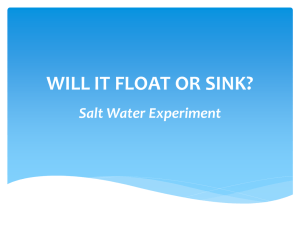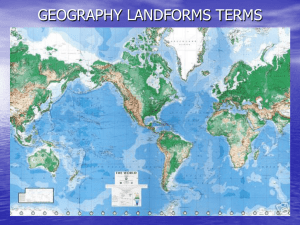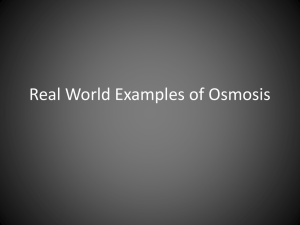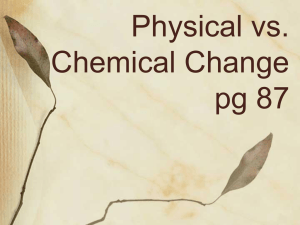TALK
advertisement
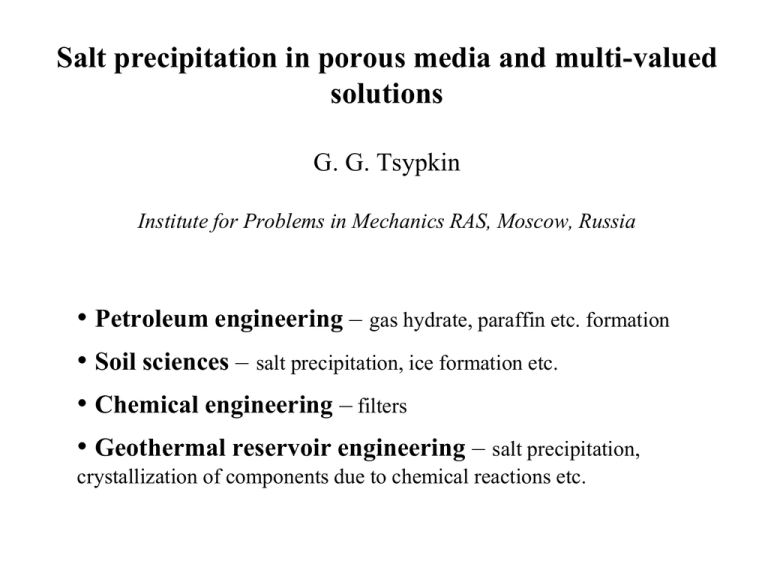
Salt precipitation in porous media and multi-valued solutions G. G. Tsypkin Institute for Problems in Mechanics RAS, Moscow, Russia • Petroleum engineering – gas hydrate, paraffin etc. formation • Soil sciences – salt precipitation, ice formation etc. • Chemical engineering – filters • Geothermal reservoir engineering – salt precipitation, crystallization of components due to chemical reactions etc. Salt precipitation in soils with destruction of porous media SPE 68953 The Precipitation of Salt in Gas Producing Wells W. Kleinitz, SPE, M. Koehler and G. Dietzsch, SPE, Preussag Energie GmbH, Germany. 2001. Scanning electron micrograph of precipitate formation in the sample of rock Sketch of the problem: salt precipitation in geothermal reservoirs Basic equations Vapor domain: (1 S pr ) v div( v v v ) 0, t k ( S pr ) vv gradP, v Water domain: P v RT k w div( w v w ) 0, v w gradP, t w w w0 1 w ( P P0 ), c v w grad c 0 t ( e) m div( w hw v w v hv v v ) div(m gradT ) t – porosity, – density, k – permeability, µ – viscosity, w – compressibility, h – specific enthalpy, e – the specific internal energy, – thermal conductivity, T – temperature, P – pressure, v – filter velocity, Spr – solid salt saturation, c – salt concentration Boundary conditions through the interface Discontinuities of water and salt saturation functions (Vn un ) 0 Mass balance for H2O and salt: P Momentum balance: T 0 Thermodynamic equilibrium: Energy balance: 0 h(Vn un ) (gradT ) n 0 Initial and boundary conditions x 0: P Pwell t 0: P P0 , T T0 , c c0 , X (t 0) 0 Similarity solution P P( ), T T ( ), c c( ), x X (t ) t , t Variation of the mass of salt in the vapour domain as a function of reservoir pressure Tsypkin G., Woods A. J. Fluid Mech. 2005 msalt S pr salt 500 m salt 400 -3 [kg m ] 300 P 200 =4 bar well P =6 bar well 100 P =8 bar well 0 0 20 40 60 P [bar] 0 80 100 Analytic (1) and numerical results (2) Tsypkin G., Calore C. Proc. 32nd Workshop on Geothermal Reservoir Engineering, Stanford, 2007 = 0.1, T= 513.15 K, k = 0.5 10-17, Pwell = 2 10 6 1 S pr 0.8 2 0.6 1 0.4 1 1.2 1.4 1.6 1.8 2 -7 2.2 P 10 Pa 0 Salt diffusion influence in low-permeability reservoirs Tsypkin G. Fluid Dynamics. 2009. salt v* w P* exp( 2 D / 1 ) v* P* 1 K ( S pr ) Pw2 1 1 2 0, F ( ) 1 S pr (1 S pr ) w w 1 D P0 erfc( D / 1 ) w P0 D 4 P* w w P* exp( 2 D / 1 ) c* c0 exp(( Ac ) 2 ) kP k 1 S pr c* 1 , w 0 , 1 salt 1 D P0 erfc( D / 1 ) c* erfc( Ac ) w w w -17 T = 450 K, k = 10 -18 (1) 10 (2), = 0.1, 6 Ac 5 c = 0.1, P = 6 10 , P = 4 10 0 0 w w ( P0 P* ) P* 2 F() /2 D 1 2 0 T = const 1 -1 -2 0 0.4 0.8 1.2 Conclusions There are two self-similar solution branches for precipitation problem These two branches coincide for critical values of the parameters, and above these values, the self-similar solution ceases to exist For a higher initial pressure and larger well pressure rock becomes fully sealed with salt Salt diffusion may lead to a sleeping regime formation in low-permeability rock


